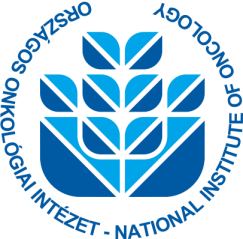
Description of the RI
For more than half a century, the NIO has been the patient care, organizational, methodological, research and training center of Hungarian oncology. The NIO research center is Hungary's internationally recognized oncological research infrastructure. It has 7 dedicated research departments and extensive clinical and translational research is carried out in its clinical departments.
The NIO was awarded the highest level available in the accreditation structure of the Organization of European Cancer Institutes (OECI), the Comprehensive Cancer Center certification in 2008, which was renewed in 2013 and 2018, as the only institute in the Central and Eastern European region. One of the key pillars of accreditation is the research activity carried out in the given institute.
The Institute has a state-of-the-art research infrastructure (large instruments) and research support departments such as the centralized biobank, the SPF animal house or the isotope laboratory.
Activities and Services
Clinical, translational, epidemiological and basic research are coordinated with significant grant support, unique infrastructure, patients and multidisciplinary expertise, which have been documented in an increasing number of prestigious multidisciplinary journals as first / last authors.
The main areas of research in the NIO are: the analysis of the genetic diversity of the Hungarian population; discovering new targets for developing new therapies; exploring molecular pathways responsible for treatment resistance; identification of new molecular markers for diagnosis and response to therapy; molecular diagnostic facility to ensure the success of precision medicine; prevention and early detection of hereditary cancers (breast, colon and rectum).
Clinical research:
- Increase in the number of clinical trials and patients involved
- More than 100 ongoing clinical trials
- Sponsored clinical trials
- Cooperation with leading organizations (EORTC, International Breast Cancer Study Group, etc.)
- Researcher-initiated clinical trials
- Coordinating role in more and more clinical trials
Basic research:
- New directions in basic research
- functional proteomics
- redox tumor biology
- endocrine tumors
- development of novel therapies
Our priority translational research programs:
- 2021 - Operation of the National Tumor Biology Laboratory
- Subprogram 1: Development of the National Cancer Registry: development and clinical application of the Hungarian oncological database
- Subprogram 2: Innovative approach to therapeutic development by modulating tumor cell redox systems.
- Subprogram 3: Clinical research
- 2019-2020 – National Excellence Program: "Innovative oncological treatment of breast cancer and melanoma". The aim of the project is to develop and apply a precision treatment model for the treatment of breast cancer and melanoma by combining surgery, radiotherapy, clinical oncology, imaging, molecular diagnostics and basic research efforts.
- 2017-2019 National Oncogenomic Project
Epidemiological research:
NIO maintains the National Cancer Registry. Reconciliation of the databases of The National Healthcare System, the National Statistical Agency and the National Cancer Registry is currently underway.
Hungary has recently joined the WHO's International Agency for Research on Cancer (IARC), with which the OOI Research Center is conducting high-level epidemiological researches.
Single site
National Institute of Oncology
Budapest
Fully operational, 2017-
- Semmelweis University
- University of Debrecen
- University of Pécs
- University of Szeged
- Markusovszky University Teaching Hospital, Szombathely
- Eötvös Loránd Research Network (ELKH)
INTERNATIONAL COLLABORATION
With RIs
- 1 million genom (1MG)
- ERN (EURACAN and ENDOERN)
- BRESO - European Breast Certification Program
- International Agency for Research on Cancer (IARC)
- GEC-ESTRO
Institutional partners
- Karolinska Institutet and Karolinska University Hospital
- Tohoku University
- German Cancer Research Center (DKFZ)
- International Agency for Research on Cancer (IARC)
- Central-Eastern European Academy of Oncology (CEEAO)
- EMQN International accreditation for molecular diagnostics
- European Organisation for Research and Treatment of Cancer (EORTC)
- International Prevention Research Institute (IPRI)







